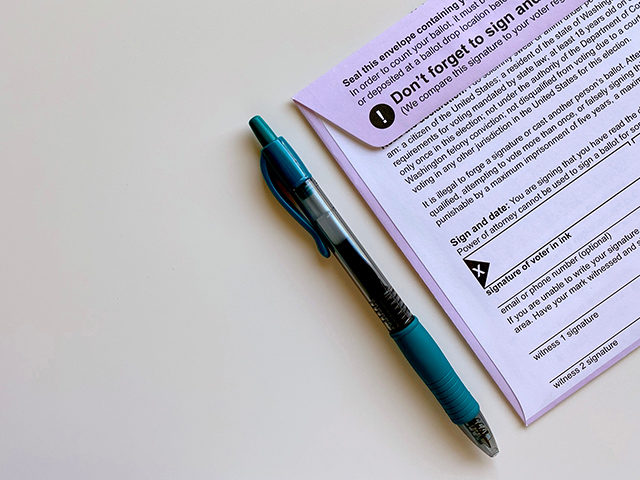Signature matching practices are facing mounting legal challenges as millions are expected to cast their ballots by mail in this year’s general election.
An estimated 75 percent of Americans will be able to vote by mail in the upcoming presidential election, which comes as Democrat politicians continue in their attempts to use the Chinese coronavirus pandemic to push mass mail-in voting — a long-pursued agenda item of the Democrat Party.
Signature matching, a process whereby county election boards verify the authenticity of the ballot by matching the signature to that of the voter, is facing increased legal challenges from various voting rights groups.
In Indiana, for example, the board matches the signature “on a provided affidavit printed on the outside of a return envelope.” There remain countless instances of boards rejecting ballots due to discrepancies in the signatures. Over 550,000 ballots were rejected in the 2020 primaries alone for several reasons, one of which included mismatched signatures.
The practice is now facing legal challenges in states like Indiana, where a federal judge last week determined signature matching to be unconstitutional, as boards are not required to alert the voter, nor do they provide an option to address the suspected error.
Under U.S. District Court Judge Sarah Evans Barker’s ruling, state election officials in the Hoosier State can no longer reject a ballot that contains a mismatched signature “without giving proper notice to the voter and without providing means to contest the decision,” as USA Today detailed.
Similarly, groups in Ohio, including the American Civil Liberties Union (ACLU) and ACLU of Ohio, are lodging a similar challenge, asking the courts to end the signature matching process as it currently operates, referring to it as a “flawed” system. Voters, the groups contend, should have “sufficient notice of purportedly mismatched signatures and the opportunity to fix those mismatches when boards of elections mistakenly reject their ballots and ballot applications on the basis of signature mismatches.”
The ACLU has targeted signature matching practices in the past, contending that they “disproportionately impact voters already on the margins,” affecting “people with disabilities, trans and gender-nonconforming people, women, people for whom English is a second language, and military personnel,” specifically.
“People who are transgender may have a different signature, and use a different name than when they initially registered to vote,” read a November 2018 blog entry from the ACLU Voting Rights Project’s Lila Carpenter:
Due to a plethora of legal, financial and societal barriers, legal name changes are not always possible. If they sign with a name that does not match the name in their voter registration file, or attempt to recreate their old signature, it may trigger a signature mismatch.
“Absentee ballots are intended to make voting more accessible for qualified voters, not to disenfranchise marginalized populations,” Carpenter concluded.

COMMENTS
Please let us know if you're having issues with commenting.